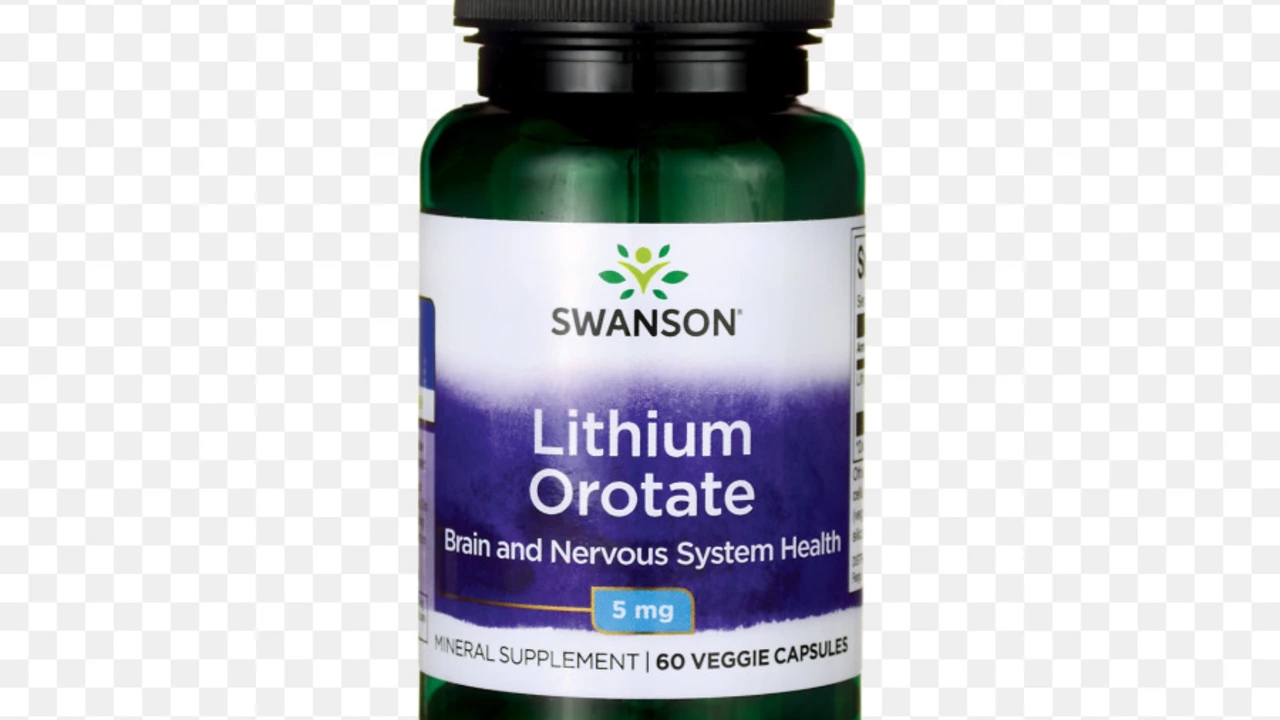Lithium Supplements: Benefits, Risks, and How to Use Them
If you’ve seen lithium mentioned alongside mood‑stabilizing meds, you might wonder if a supplement version exists for everyday use. The short answer is yes – there are low‑dose lithium products sold as dietary supplements. People take them hoping for calmer moods, better sleep, or even neuro‑protective effects. Before you pop a bottle, it helps to know what the mineral actually does and where the science stands.
What Are Lithium Supplements?
Lithium is a naturally occurring element found in tiny amounts in water, soil, and some foods like leafy greens and grain products. In prescription form (lithium carbonate or lithium citrate) it’s used at high doses to treat bipolar disorder. Supplement‑grade lithium contains far less – usually measured in micrograms (µg) rather than milligrams (mg). Brands often market the product as “low‑dose lithium” or “micro‑dose lithium,” and they claim benefits such as mood balance, stress reduction, and improved cognitive function.
Because the dose is tiny, you won’t get the same therapeutic effect as a prescription drug. However, some small studies suggest that even low doses can influence brain chemistry by modulating neurotransmitters like serotonin. The research is still limited, so most health experts treat lithium supplements as experimental rather than proven.
How to Take Lithium Safely
First thing – check the label for the exact amount of elemental lithium (often listed in µg). A typical supplement dose ranges from 100‑500 µg per day. That’s roughly a thousand times lower than what doctors prescribe for bipolar disorder, which means the risk of serious side effects is much smaller.
Even with low doses, you should keep an eye on kidney function and thyroid health if you plan to use lithium long term. Simple blood tests can flag any trouble early. If you already take prescription lithium or other mood‑stabilizing meds, talk to your doctor before adding a supplement – the combined effect could push levels higher than intended.
Take the supplement with food and plenty of water. This helps prevent stomach upset and improves absorption. Avoid using it alongside diuretics (water pills) unless a healthcare professional says it’s okay, because those can raise lithium levels unexpectedly.
If you notice signs like tremors, excessive thirst, frequent urination, or unusual fatigue, stop the supplement and seek medical advice. These symptoms can signal that lithium is building up beyond safe limits, even at low doses.
Who Might Benefit?
People who report mild anxiety, occasional mood swings, or trouble sleeping sometimes try low‑dose lithium as a natural alternative to prescription drugs. Athletes and biohackers also experiment with it for its rumored neuroprotective properties. The key is realistic expectations – you won’t replace medication if you have a diagnosed mental health condition.
For most healthy adults, a daily dose of 200‑300 µg is considered low risk. Start at the lower end and see how you feel after a couple of weeks before deciding whether to increase. Keep a simple journal noting mood, energy, and any side effects; this data can guide your next steps.
Bottom Line
Lithium supplements are a low‑dose way to explore the mineral’s potential mood‑balancing benefits without diving into prescription territory. They’re generally safe when you stick to recommended amounts, stay hydrated, and monitor your health markers. Always check with a medical professional if you have kidney or thyroid concerns, or if you’re already on lithium medication.
When used responsibly, low‑dose lithium can be an interesting addition to a broader wellness plan that includes diet, exercise, and good sleep hygiene. Treat it as a tool – not a miracle cure – and you’ll get the most out of what this ancient mineral has to offer.
Boost Your Mood and Brain Health with the Miraculous Benefits of Lithium Supplements
In my latest blog post, I delve into the amazing benefits of lithium supplements for mood enhancement and brain health. You might be surprised to learn how this simple supplement can help combat depression, mood swings, and even neurodegenerative conditions. I discuss how lithium boosts brain function, supports mental health and can even slow down the aging process. Moreover, I've also looked into the science-backed evidence and shared expert opinions to substantiate these claims. So, if you're interested in boosting your mental well-being, you might want to consider adding lithium supplements to your routine.






